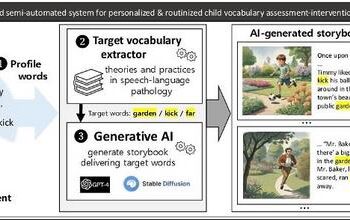Race-neutral equations for interpreting lung function tests more accurately predicted risk of death and COPD flare ups compared to race-specific standards.
Race-neutral equations for interpreting lung function tests more accurately predicted risk of death and COPD flare ups compared to race-specific standards.
|
KEY TAKEAWAYS
|
A new study from researchers at Brigham and Women’s Hospital, a founding member of the Mass General Brigham healthcare system, found that using race-neutral metrics to interpret the results of lung function tests more accurately predicted the risk of death and disease flare-ups in patients with chronic obstructive pulmonary disease (COPD), compared to commonly used race-specific ranges. Results are published in the American Journal of Respiratory and Critical Care Medicine.
COPD is a progressive breathing disorder that limits airflow in the lungs and affects roughly 16 million Americans. Lung function (spirometry) tests are crucial in diagnosing COPD and assessing eligibility for lung transplant, a potentially life-saving procedure for those with severe COPD.
“When transitioning from race-specific to race-neutral equations, we saw that participants who self-identified as African American were most significantly impacted, with most moving up a severity level,” said senior author Craig P. Hersh, MD, MPH, a clinician-investigator in the Division of Pulmonary and Critical Care Medicine and the Channing Division of Network Medicine at BWH. “These reclassifications are important because they can allow those most in need to gain eligibility for specialized treatments, like lung transplant.”
For the past two decades, the Global Initiative for Chronic Obstructive Lung Disease (GOLD) has categorized COPD stages based on lung function test results which are interpreted using race-specific reference equations. This means that what is considered a normal score for African American individuals can differ from “normal” for white individuals. In 2021, the European Respiratory Society (ERS) and the American Thoracic Society (ATS) initiated discussions about adopting race-neutral reference equations for interpreting lung function tests. In 2023, ATS issued a statement advocating for the use of race-neutral equations.
For this study, Hersh and colleagues gathered data from the Genetic Epidemiology of COPD Study (COPDGene), an observational study involving participants who self-identified as non-Hispanic white or African American former and current smokers, as well as healthy controls aged 45 to 80 years old. The study, which enrolled patients from 2008 to 2011, and involved 21 centers across the United States. Researchers identified current and former smokers with available lung function test data at the baseline visit and evaluated their airflow obstruction/lung function using both race-specific and race-neutral criteria.
Of the 10,108 subjects included, 53.4% (5,394) were male and 46.6% (4,714) were female. 66.9% (6,760) participants identified as non-Hispanic white and 33.1% (3,348) identified as African American. Over the medical follow-up time of 10.5 years, 26.5% (2,676) participants passed away.
Compared to race-specific equations, researchers found that the race-neutral system more accurately predicted risk of death and flare ups particularly for individuals classified as having “pre-COPD.” Nearly all African American individuals initially classified as GOLD severity stage two based on race-specific standards were upgraded to a moderate level (equivalent to stage 3) of severity using race-neutral metrics. Approximately 48% of white individuals’ severity rankings remained unchanged, while roughly 41% were downgraded to a less severe level using race-neutral reference ranges. Only 13.2% of white subjects were reclassified to moderate severity when transitioning from race-specific to race-neutral metrics.
Findings are limited in that this study only included participants in the U.S. who self-identified as non-Hispanic white or African American. Hersh hopes future studies will include a broader range of races and ethnicities so that these findings can be better generalized for the U.S. population. Additionally, the COPDGene study only looked at current and former smokers. Hersh explained that looking at other risk factors for COPD like occupational hazards and pollution would allow these results to be more broadly applicable to all at risk of or living with this condition.
“The Brigham has already shifted to using race-neutral equations when interpreting pulmonary function tests, but not all labs across the U.S. have made these changes. Producing more data that replicates these reults will allow us to continue to improve care for patients living with COPD,” said Hersh.
Authorship: In addition to Craig Hersh, Brigham authors of the study include Enrico Schiavi, Min Hyung Ryu and Leonardo Martini.
Disclosures: The COPDGene study (NCT00608764) has been supported by the COPD Foundation through contributions made to an Industry Advisory Committee that has included AstraZeneca, Bayer Pharmaceuticals, Boehringer-Ingelheim, Genentech, GlaxoSmithKline, Novartis, Pfizer, and Sunovion. The funders did not have any role in the analyses or presentation of these findings.
Funding: This work was supported by NHLBI grants U01 HL089897 and U01 HL089856 and by NIH contract 75N92023D00011.
Paper cited: Schiavi E. et al. “Application of the ERS/ATS Spirometry Standards and Race-Neutral Equations in the COPDGene Study.” American Journal of Respiratory and Critical Care Medicine DOI: 10.1164/rccm.202311-2145OC
Journal
American Journal of Respiratory and Critical Care Medicine
Method of Research
Observational study
Subject of Research
People
Article Title
Application of the ERS/ATS Spirometry Standards and Race-Neutral Equations in the COPDGene Study
Article Publication Date
11-Apr-2024
COI Statement
The COPDGene study (NCT00608764) has been supported by the COPD Foundation through contributions made to an Industry Advisory Committee that has included AstraZeneca, Bayer Pharmaceuticals, Boehringer-Ingelheim, Genentech, GlaxoSmithKline, Novartis, Pfizer, and Sunovion. The funders did not have any role in the analyses or presentation of these findings.
Discover more from Science
Subscribe to get the latest posts sent to your email.



